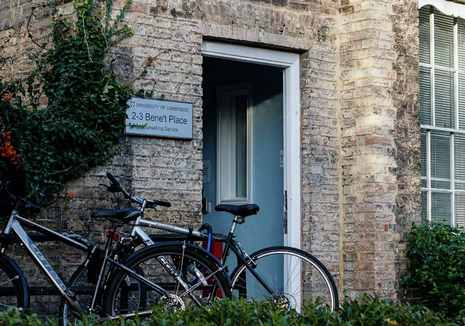Cambridge cuts funding for ADHD and autism diagnoses
The University is putting further restrictions on its depleting medical support fund following initial tightening last month

Cambridge University will stop medical funding for ADHD and autism diagnoses, as well as private medication, from the beginning of April.
According to financial modelling conducted by the University, the current rate of claims to the Crane’s Fund is said to be at “an unsustainable level”.
Unless changes were made, it was projected that fund reserves would be spent entirely at the end of next year (2024/25) and it would be limited to £85,000 per year in the future. In the past academic year (2022/23), the fund spent £609,788 on student support.
ADHD assessments were the second largest financial claim for the Crane’s Fund at £145,059 of the £609,788 total, Varsity can reveal.
Initially announced yesterday, the restriction to funding was originally planned to come into effect this Sunday (18/03), the first day of neurodiversity awareness week. However, due to the concerns raised by students since the announcement was made the deadline has been extended to 1 April.
Further restrictions are anticipated to come into effect in 2024/25 to restrict funding to mental health treatment only, reducing the maximum claim from £1,800 to £1,000 and with colleges paying up to 25%. 58% of the claims awarded in the past year were over £1,000.
Senior Tutors were informed of the finalised change via email on Tuesday, but had been alerted to the problem of Crane’s fund going bust earlier in the year. Some Senior Tutors had discussed this with JCRs and MCRs last term.
The SU were also not notified of these plans beforehand, and became aware of these changes after the Crane Fund’s website was updated. These changes come as the SU currently has no disabilities officer after Ell Gardner-Thomas resigned in January.
The university has not directly contacted students to inform them of this change. Some colleges, including Murray Edwards, Clare, Selwyn, Jesus, Pembroke, Emanuel, Robinson and Lucy Cavendish have informed students, but many other colleges are yet to do so.
The SU Disabilities Campaign told Varsity: “NHS waiting times are extremely long for accessing diagnosis and treatment for a range of health conditions and disabilities, including autism and ADHD.
“Many students have only been able to access the necessary evidence to be allowed reasonable adjustments for their teaching and exams through using this fund, and it is very worrying that this resource has been limited without plans for any alternative provision.”
Chola Waya, incoming SU Disabilities Officer, told Varsity: “It amounts to discrimination and the exclusion of a significant minority of our fellow students based on the invisibility and deniability of their disabilities.”
A University spokesperson told Varsity: “There has been a thorough consultation with internal stakeholders on the future of the Crane’s Fund. Eligibility criteria was changed to ensure the Fund continued to be available to those most in need of medical support, as was set out in the original terms of the bequest.”
 News / Judge Business School advisor resigns over Epstein and Andrew links18 February 2026
News / Judge Business School advisor resigns over Epstein and Andrew links18 February 2026 News / Hundreds of Cambridge academics demand vote on fate of vet course20 February 2026
News / Hundreds of Cambridge academics demand vote on fate of vet course20 February 2026 News / Petition demands University reverse decision on vegan menu20 February 2026
News / Petition demands University reverse decision on vegan menu20 February 2026 News / CUCA members attend Reform rally in London20 February 2026
News / CUCA members attend Reform rally in London20 February 2026 News / Caius students fail to pass Pride flag proposal20 February 2026
News / Caius students fail to pass Pride flag proposal20 February 2026










